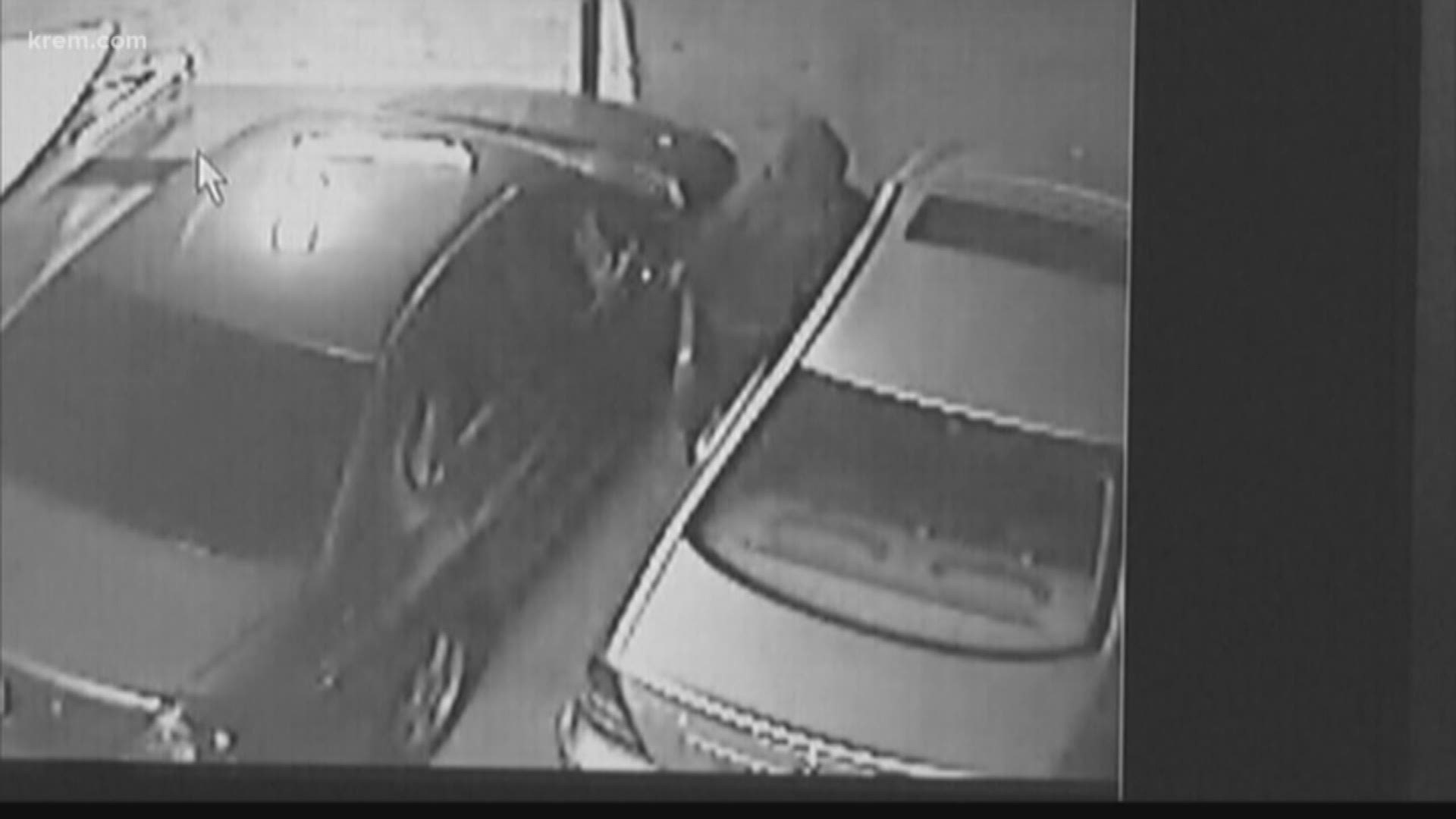Many leaders and citizens agree: property crime is one of the most enduring issues in Spokane.
That is why a bipartisan coalition has formed around a bill aimed at reducing auto thefts by reforming the way those crimes are punished.
"At one point we were somewhere in the top ten in the nation for vehicle thefts," said Spokane Police Chief Craig Meidl. "Very frustrating problem for all of us."
"It really is a top priority if not the top priority of our citizens," said Spokane Mayor David Condon.
When it comes to car theft, one of the city's biggest obstacles is stopping repeat offenders.
"Twenty-five individuals could be directly tied to 200 vehicle thefts," Meidl said.
That means reducing the rates of recidivism. A common tool for doing that is continued supervision after release from prison.
Due to recession-era budget cuts, Washington is currently the only state in the country where community supervision doesn't exist for property criminals, according to Spokane city leaders.
"Right now, when people come out of prison, even if they have drug issues and mental health issues, they just let them out and they don't give them any structure," said Spokane City Councilman Breean Beggs. "And sure enough they relapse and start stealing cars again."
"It's hard to argue with the fact that we need to do something different," Meidl added.
Condon, Meidl and the city council are now lobbying for a bill that would restore supervision as an option.
If passed, car thieves may be able to spend less time in prison in exchange for more time being supervised. Judges would be given the choice to reduce prison sentences and replace that time with community supervision. The current proposed ratio: for every month of reduced prison time, three months of supervision on the outside.
The ratio was arrived at in part because keeping someone in prison for a month costs about the same to the government as supervising them for three, according to advocates. In theory, that means the proposal should not cost the state any money.
"Prison is so expensive. Supervision and re-entry is much cheaper and more effective," Beggs said.
The bill right now is focused on auto theft only because it's so common, impactful and intertwined with other crimes.
"That's what most citizens are complaining about," Beggs said. "So we thought we'd start there, do it for a couple years, demonstrate the positive results and then ask the legislature to expand it."
The idea is that by replacing hard time with structured supervision, the system can ease convicts back into the community and prevent a cycle of crime.
"[We're] focused on the victim and making sure we can reduce the crime, and at the same time looking at the offender and making sure that they're connected to the services so that they don't go back to this lifestyle," Condon said.
"These community corrections officers, they want [the participants] to be successful. They don't want them to go back to prison," Meidl said. "It's better for the community, it's better for the individual who just got released, so everybody benefits."
All three men went to Olympia on Monday to testify on behalf of the bill and said the hearing went well.
Condon noted said they spoke with the committee members for more than an hour, while those who testify usually do so for about three to five minutes. He said there was statewide, bipartisan interest in the measure.
Similar bills have failed the past two years, but this year it has already passed the Senate unanimously and moved to the state House.
"It often takes about three years. Last year we were so close to getting it done," Beggs said.
"This coalition has been building over the past couple years. I believe this is the year that it will pass," Condon said.
"I am as confident as I've ever been. It seems to be just gliding through," Meidl added.
If the bill does pass, the men also think it is likely that Washington Gov. Inslee will sign it into law.

